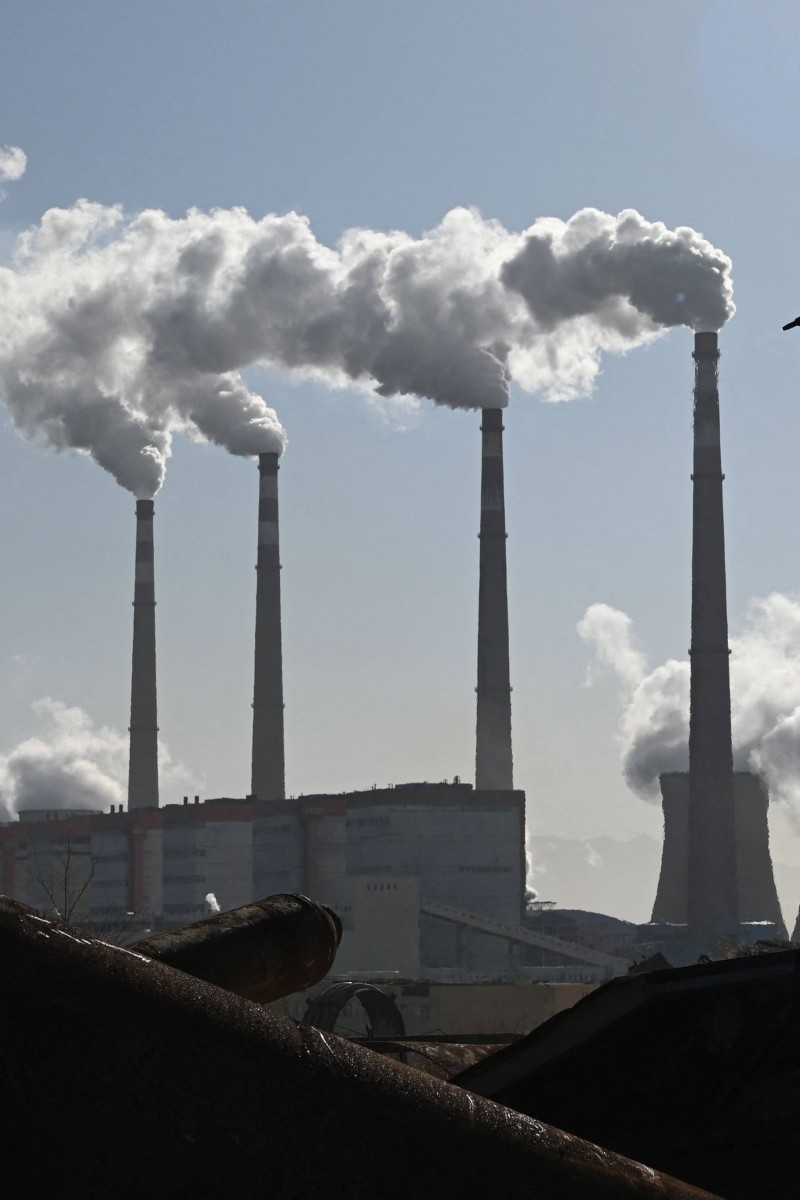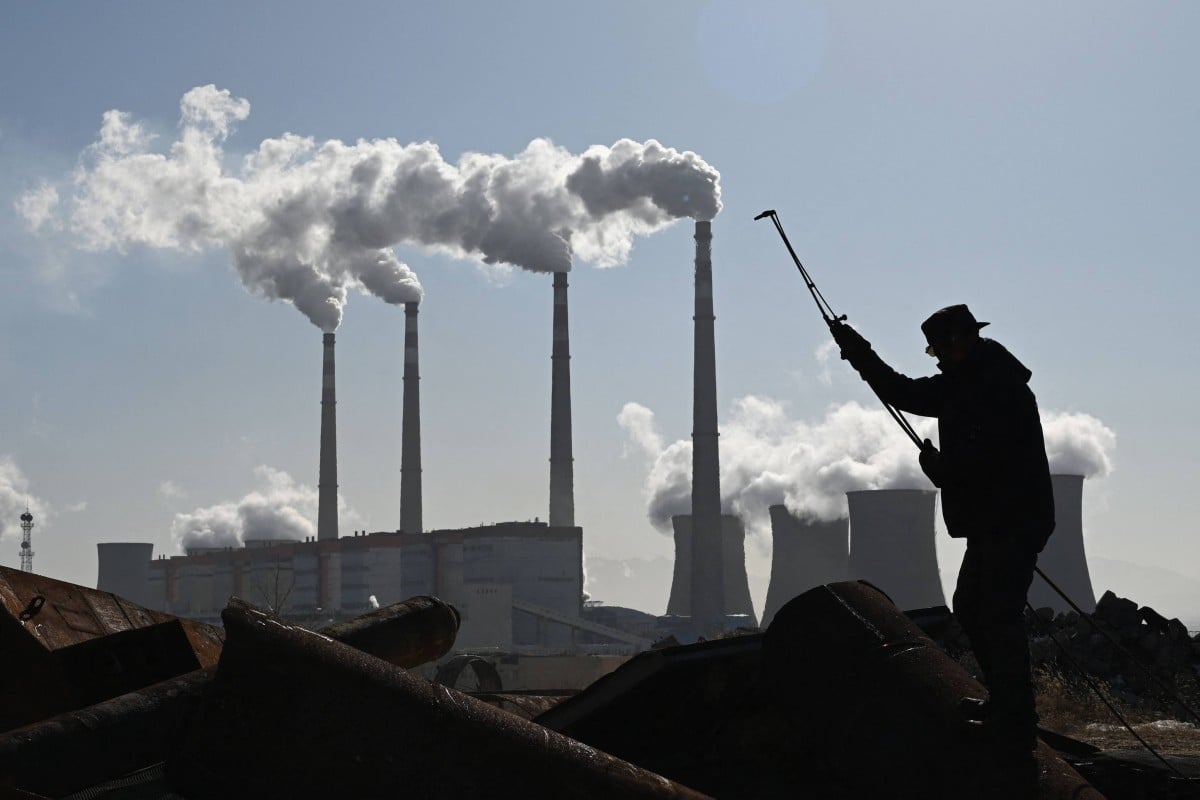
World is ‘sleepwalking to climate catastrophe’ as 1.5C goal moves out of reach, UN chief Antonio Guterres says
- The planet-saving goal of capping global warming at 1.5 degrees Celsius is already “on life support”, the UN secretary-general tells a sustainability conference in London
- He adds the Russian invasion of Ukraine may further cement fossil fuel dependence for countries scrambling to replace Russian oil and gas
 Guterres says rich nations should provide money, technology and expertise to help developing countries purge coal from their energy portfolios. Photo: AFP
Guterres says rich nations should provide money, technology and expertise to help developing countries purge coal from their energy portfolios. Photo: AFPUN chief Antonio Guterres said Monday the world was “sleepwalking to climate catastrophe”, with major economies allowing carbon pollution to increase when drastic cuts were needed.
The planet-saving goal of capping global warming at 1.5 degrees Celsius was already “on life support”, he told a sustainability conference in London.
Keeping that goal in play requires a 45 per cent drop in emissions by 2030 and carbon neutrality by mid-century, according to the UN’s Intergovernmental Panel on Climate Change (IPCC). But even if nations honour newly revised pledges under the Paris Agreement, emissions are still set to rise 14 per cent before the decade ends.
“The problem is getting worse,” Guterres said in a pre-recorded video message. “We are sleepwalking to climate catastrophe.”
“If we continue with more of the same, we can kiss 1.5C goodbye,” he added. “Even two degrees may be out of reach.”
His comments came only hours before the 195-nation IPCC kicked off a two-week meeting to validate a landmark report on options for reducing carbon pollution and extracting CO2 from the air. The report is expected to conclude that CO2 emissions must peak within a few years if the Paris temperature targets are to be met.
The Russian invasion of Ukraine, Guterres added, could further derail climate action with importers locking in fossil fuel dependence as they scramble to replace Russian oil and gas.
“Countries could become so consumed by the immediate fossil fuel supply gap that they neglect or kneecap [climate] policies,” he said. “This is madness. Addiction to fossil fuels is mutually assured destruction.”
Why two Hong Kong teen climate activists say ‘there is still hope’
Breaking with the usual practice of not singling out countries, Guterres called out Australia and a “handful of holdouts” for failing to lay out “meaningful” near-term plans to slash emissions.
He also said the development needs and economic structures of China, India Indonesia and other “emerging economies” prevent them from making similar commitments, especially on coal.
Rich nations should provide money, technology and expertise to help these emerging economies purge coal from their energy portfolios, he added.
Wealthy nations in the Organisation for Economic Co-operation and Development (OECD) must phase-out coal by 2030, and all other countries by 2040, Guterres said.
Corals doomed even if global climate goals met
China and India – both heavily reliant on coal – have resisted a full embrace of the 1.5C goal, along with pressure to set more ambitious short-term emissions reduction targets. Both nations, however, have set long-term “net-zero” goals for carbon neutrality, 2060 for China and 2070 for India.
A landmark IPCC report on climate impact and humanity’s capacity to adapt, published last month, details an atlas of human suffering and warned that far worse is to come.
Unprecedented floods, heatwaves and wildfires seen across four continents in the last year will all accelerate in coming decades even if the fossil fuel pollution is rapidly brought to heel, the report concluded.
Guterres was addressing a four-day conference organised by The Economist.